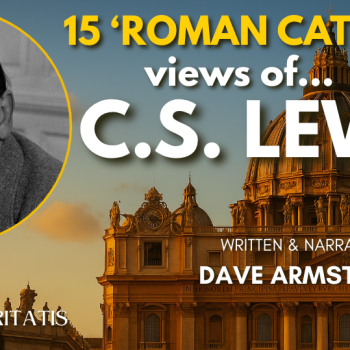
I think the theist can make a strong, general appeal to beauty and aesthetics as an intrinsic part of the universe, and as necessary in their own way as breathing and brain waves. I would contend that there is a link between the beauty we perceive in the order and proportion, dramatic contrast, design, symmetry, color, etc., of creation, and the God Who lies behind all that.
In other words, it could be argued as a subset of the teleological argument for God (the argument from design). Plenty of atheists or non-Christian types have made statements along these lines. Albert Einstein (a sort of pantheist or panentheist) comes to mind:
My religiosity consists of a humble admiration of the infinitely superior spirit that reveals itself in the little that we can comprehend about the knowable world. That deeply emotional conviction of the presence of a superior reasoning power, which is revealed in the incomprehensible universe, forms my idea of God. (To a banker in Colorado, 1927. Cited in the New York Times obituary, April 19, 1955)
Everyone who is seriously involved in the pursuit of science becomes convinced that a spirit is manifest in the laws of the universe — a spirit vastly superior to that of man . . . In this way the pursuit of science leads to a religious feeling of a special sort . . . (To student Phyllis Right, who asked if scientists pray; January 24, 1936)
In view of such harmony in the cosmos which I, with my limited human mind, am able to recognize, there are yet people who say there is no God. (to German anti-Nazi diplomat and author Hubertus zu Lowenstein around 1941)
Then there are the fanatical atheists . . . They are creatures who can’t hear the music of the spheres. (August 7, 1941)
Now, I ask atheists: whence comes Einstein’s “deeply felt conviction”? Is it a philosophical reason or the end result of a syllogism? He simply has it. It is an intuitive or instinctive feeling or “knowledge” or “sense of wonder at the incredible, mind-boggling marvels of the universe” in those who have it. It’s scarcely distinguishable — if at all — from what St. Paul expressed:
Romans 1:19-21 (RSV) For what can be known about God is plain to them, because God has shown it to them. [20] Ever since the creation of the world his invisible nature, namely, his eternal power and deity, has been clearly perceived in the things that have been made. So they are without excuse; [21] for although they knew God they did not honor him as God or give thanks to him, but they became futile in their thinking and their senseless minds were darkened.
King David wrote similarly a thousand years earlier:
Psalms 19:1 The heavens are telling the glory of God; and the firmament proclaims his handiwork.
Some atheists may tell us that they don’t possess this intuition (or if they do, don’t talk much about it), but my point is that it is not utterly implausible or unable to be held by even the most rigorous, “non-dogmatic” intellects, such as Albert Einstein and David Hume (who — contrary to a widespread myth — was a deist or “minimal theist” and actually accepted one form of the teleological argument). And the atheist has to account for that fact somehow, it seems to me.
The other approach I would use is the “argument from longing.” Many atheists feel this longing or deep yearning in the enjoyment of nature or a great cathedral, or, for example (oftentimes), an affection for Christmas and its delightful customs and traditions that is deeper than merely “childhood nostalgia.” We can build on that and construct a persuasive argument from it that can be interesting to them and non-confrontational.
***
Related Reading:
My “Romantic / Imaginative” Conversion to Christianity [1997; rev. 2015]
C. S. Lewis and the Romantic Poets on Longing, Sehnsucht, and Joy [2001]
Was Philosopher David Hume an Atheist? [2-17-03]
Theistic Argument from Desire: Dialogue w Atheist [12-2-06]
Albert Einstein’s “Cosmic Religion”: In His Own Words [originally 2-17-03; expanded greatly on 8-26-10]
15 Theistic Arguments (Copious Resources) [11-3-15]
Argument for God from Desire: Atheist-Christian Dialogue [8-7-17]
Dialogue with a Friendly Atheist #2: Music, Longing, & Mysticism (+ Part Two / #3) [8-7-17 and 8-14-17]
Dialogue: Has God Demonstrated His Existence (Romans 1)? [9-1-18]
**
The Argument from Desire (Peter Kreeft, 1994)
The Bayesian Argument from Desire (Victor Reppert, 2009)
The ontological argument from desire (Alexander R. Pruss, 2010)
***
(originally 3-27-08; expanded on 3-14-19)
Photo credit: [Pexels.com / CC0 public domain license]
***













